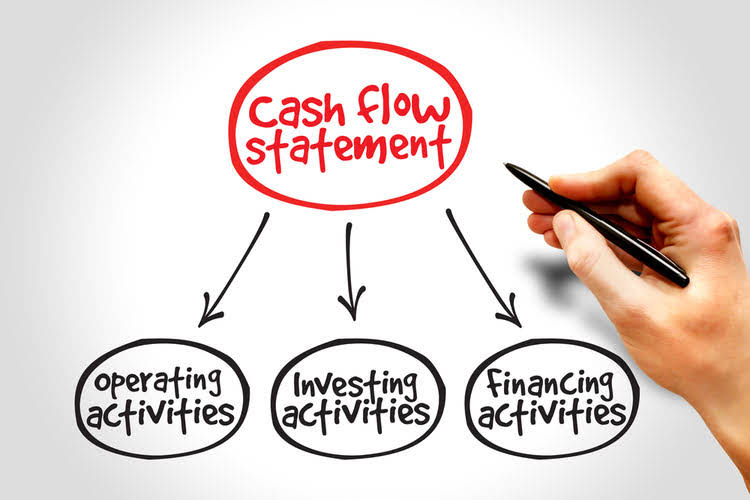
For instance, the stock market currently has a 7% annual return. However, this does not assure that if you invest, you will also get a 7% return this year. This is because no matter where and how they occur, if there was no scarcity, they would not exist. When there is no scarcity, no needs of an individual remain Accounts Receivable Outsourcing unsatisfied.
- Despite these challenges, even approximate estimations of opportunity costs can significantly improve decision quality by making implicit trade-offs explicit.
- No matter which option the business chooses, the potential profit that it gives up by not investing in the other option is the opportunity cost.
- Opportunity cost is all about understanding the trade-offs you make when you choose one thing over another.
- The theory of comparative advantage states that countries should specialise in producing goods where they have a lower opportunity cost.
- By understanding opportunity cost, individuals can make more efficient use of their resources and contribute to a more efficient allocation of resources in society.
4: The Concept of Opportunity Cost

If, for example, you spend time and money going to a movie, you cannot spend that time at home reading a book, and you can’t spend the money on something else. If your next-best alternative to seeing the movie is reading the book, then the opportunity cost of seeing the movie is the money spent plus the pleasure you forgo by not reading the book…. A comprehensive guide to understanding the concept of opportunity cost in economics and its role in economic principles, systems, theories, and models. The concept of opportunity cost gives rise to several related economic principles that further illuminate decision-making.

Advanced Resources

However, please note that opportunity costs don’t necessarily have to relate to money. In fact, more often than not, it’s really hard to value forgone benefits in money. This is obviously really hard to measure in dollar terms, but still an important factor to consider when making your decision. Let’s look at a simple example — just two people, Bob and Ann, who produce just two goods, bananas and fish. Because of the concept of opportunity costs, Ann and Bob are worse off when they try to do everything themselves. Here’s what Bob can do if he spends all of his time producing only one good.
- In theory marginal costs represent the increase in total costs (which include both constant and variable costs) as output increases by 1 unit.
- Opportunity costs, on the other hand, represent the lost benefit of the next best alternative that was not chosen.
- Sunk costs should be irrelevant for future decision making, while opportunity costs are crucial because they reflect missed opportunities.
- Opportunity costs fall into this category as they represent the lost benefit of the next best alternative and therefore help to make informed business decisions.
- Managers solely take into account an economically profitable decision when there are many options.
Identification of Alternatives
While it may be beneficial in the short-term to choose the option with the lowest opportunity cost, it may not be the best choice in the long run. This is especially relevant in areas such as environmental economics, where the true cost of a decision may not be immediately apparent. In addition, some critics question the universal applicability of opportunity cost in different economic systems. Companies need to weigh up which R&D projects promise the best future returns, taking into account the opportunity costs of other potential projects. When a company invests capital in a project, the opportunity cost is the return it could have earned if it had invested the capital in another, potentially more profitable investment. Additionally, opportunity costs may involve incommensurable values that cannot be easily converted to a single metric.
- If the business decides to go with the securities option, its investment would theoretically gain $2,000 in the first year, $2,200 in the second, and $2,420 in the third.
- However, tomorrow you have an exam and you could have spent the evening studying at home.
- If capital is tied up in a project, the interest that could have been earned through an alternative investment of the same capital is to be regarded as an opportunity cost.
- Because many air travelers are relatively high-paid business people, conservative estimates set the average price of time for air travelers at $20 per hour.
- Therefore, many choices involve an opportunity cost – having to make choices between the two.
- It is defined as the value of the next best alternative that must be given up in order to pursue a certain action.
- Opportunity cost is certainly a useful concept to our everyday lives.

Assume that a business has $20,000 in available funds and must choose between investing the money in securities, which it expects to return 10% a year, or using it to purchase new machinery. Opportunity cost is defined as the cost of an alternative that must be forgone in order to pursue a certain action. That means it is the potential benefit of the next best alternative that we miss out on when we don’t choose it. Or in other ledger account words, it is the cost of what we have to give up in order to get something else. After the terrorist plane hijackings on September 11, 2001, many steps were proposed to improve air travel safety.
- It also includes an overall utility with an economic profit to an individual or group.
- Therefore, even a 67 percent increase in real tuition costs in twenty years translated into an increase of just 20 percent in the average student’s total cost of a college education.
- By asking yourself this question, you can make better choices and live a more fulfilling life.
- By understanding this concept, we can make more informed choices and better evaluate the trade-offs involved in any decision.
- Capital budgeting is the process of deciding where to invest money for long-term growth.
All persons confront uniform relative prices for goods; this is a necessary condition for the absence of further gains-from-trade. Since each participant is in full behavioural equilibrium, it follows that each person must also confront the same marginal cost. As a opportunity cost means that something needs to be demander the individual adjusts his purchases to insure that marginal benefit equals price. Hence the anticipated marginal benefits of a good, again measured in the numeraire, are equal for all demanders. As a supplier the individual adjusts his sales to insure that anticipated opportunities forgone, marginal opportunity cost, equals price.

Leave A Comment